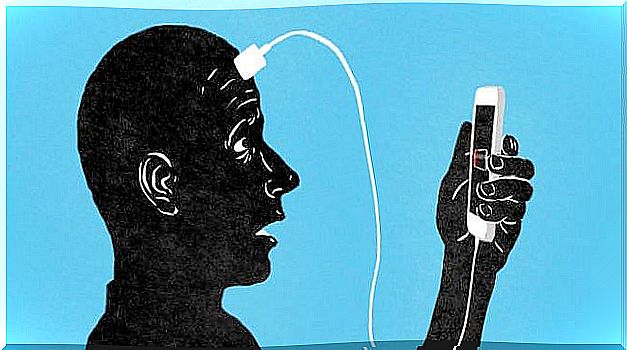What Effects Do Electronic Devices Have On The Brain?

Electronic devices have become indispensable tools in everyday life. Technology as a whole brings countless benefits, and we have integrated it into our routine to the point that many would struggle to imagine a life without it. It saves us time and simplifies a lot of chores. It also allows you to evade errors and ensures better results.
Many of the technologies are relatively recent, which is why the effects they have on humans have only recently become the subject of study. Although there are already conclusions about it, the truth is that it has not yet been precisely established how they affect our health, nor whether these tools really lead to significant changes in our brains.
What is certain is that the consequences can be very serious. In fact, experts recommend avoiding overexposure to electronic equipment. This means not keeping them too close for a long time, as well as periodically disconnecting from any device. It is also good to pay attention to any symptoms and health problems whose causes are not justifiable in other ways.
The appliances and the genetic field they generate
The presence of electromagnetic pollution is a proven fact. Both electrical and electronic appliances generate a magnetic field which, of course, affects the brain. Let’s take two commonly used tools as an example: television and computer.

In 1987 an experiment was carried out at the Institute of Laboral Medicine in Lodz (Poland). A group of pregnant female rats and a group of male rats were placed 4 hours a day in front of a television, 30 cm apart. The final effects on the females were reflected in their offspring, who were born lighter and smaller than normal. In males, shrinkage of the testicles occurred. In both cases, the amount of iodine in the cerebral cortex and hypothalamus also decreased.
Several studies have also been carried out with respect to computers. One of these led to the conclusion that pregnant women who work on computers are more prone to having an abortion. In general, those who work at the computer have the following symptoms more frequently: dry mucous membranes, redness of the skin, dry eyes, pimples and enlarged pores on the face, inflamed eyes, fatigue, migraine and stress.
All this is due to the fact that computers generate a magnetic field with positive ions; in addition, the screen reduces the frequency with which we blink. The ions are transmitted through the air, and the user inevitably receives them. The appliances can also cause a person to suffer from dizziness, nausea, etc. The solution is to position yourself at least one meter away from the appliance. This applies to both TVs and PCs. Also, before buying them, make sure in both cases that you receive the TCO certification.
Electronic devices and the social world
The area that has changed the most with technology is perhaps that of social life. The way we interact, meet and manage our bonds with others has changed a lot from the past, and continues to change. Every year new applications or new functions emerge that completely change the basis of our daily communication.
One of the most relevant aspects of these new forms of communication is their easy presence, at any time and in any place. It doesn’t matter where we are or what time it is. There is always the possibility of receiving a message, a call or an email, regardless of relevance.

Consequently, the game rules of the modern world require us to pay attention to a great many stimuli at the same time. It’s easy to have to interrupt an affair several times to communicate with someone and then start the business again. It is in these cases that a waste called “exchange cost” is generated. It’s the price we pay when we divert attention from one task to another, and then go back to what we were doing.
At the same time, the brain has to watch out for any lights that light up, ringtones that sound, vibrations that are heard, or windows that open. All these signals are initially interpreted as threats or emergencies. It’s not that they scare us, they just wake up our alert systems and a little alarm sounds inside us. If repeated continuously and for a long time, all this translates into an additional dose of stress.









